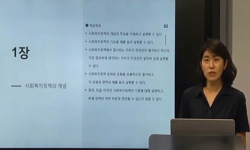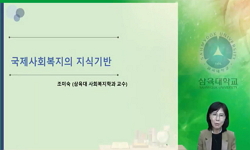Over the past two decades, Asian societies saw abrupt changes in their political, social, and economic spheres. Rapid and sustained economic growth lifted hundreds of millions of people out of poverty. Well over half of Asia’s residents are now midd...
http://chineseinput.net/에서 pinyin(병음)방식으로 중국어를 변환할 수 있습니다.
변환된 중국어를 복사하여 사용하시면 됩니다.
- 中文 을 입력하시려면 zhongwen을 입력하시고 space를누르시면됩니다.
- 北京 을 입력하시려면 beijing을 입력하시고 space를 누르시면 됩니다.
Contemporary Economic and Social Policy for Inclusive Growth
한글로보기https://www.riss.kr/link?id=E1638369
- 저자
- 발행기관
-
발행연도
2019년
-
작성언어
English
- 주제어
-
KDC
300
-
자료형태
국가정책연구포털(NKIS)
-
0
상세조회 -
0
다운로드
부가정보
다국어 초록 (Multilingual Abstract)
Over the past two decades, Asian societies saw abrupt changes in their political, social, and economic spheres. Rapid and sustained economic growth lifted hundreds of millions of people out of poverty. Well over half of Asia’s residents are now middle class and Asia is the engine of economic growth across the globe. This tremendous growth and its impact, however, are by no means uniform. The extent and type of change varied within and between countries, and many populations did not reap the same benefits as others.
Significant pockets of poverty still exist throughout the region. In fact, two-thirds of the world’s poor live in Asia. Recent data suggest that more than 800,000,000 Asians exist on less than USD 1.25 a day and 1,700,000,000 live on less than USD 2 (Kuroda, 2013). Life in Asia is especially challenging for populations living in the margins of everexpanding mega-cities, isolated rural areas, areas affected by conflict, and groups that are marginalized and excluded due to biased government systems and services or social prejudices.
목차 (Table of Contents)
- Foreword and Acknowledgements
- About the Authors
- Abbreviations
- Introduction
- Foreword and Acknowledgements
- About the Authors
- Abbreviations
- Introduction
- (Nicola Nixon)
- References
- CHAPTER 1
- Urban Primacy and Equality: Experiences from Asia and Lessons for Mongolia
- (Philippe Long and Mark Koenig)
- 1. Introduction
- 2. Ulaanbaatar and the Opportunities and Challenges of Asia’s Dominant Cities
- 3. Promoting Inclusive Equitable Growth in Urbanizing Mongolia
- 4. Inclusive Growth in the Dominant Urban Center – Ulaanbaatar
- 5. Conclusion
- References
- CHAPTER 2
- Harnessing the Power of Social Enterprises through Government Investment and Collaboration with the Non-governmental Sector
- (Stephen Wong, Alvin Cheung, Natalie Lau, and Johnson Kong)
- 1. Introduction
- 2. The Challenges of Inclusive Growth
- 3. Social Enterprises: A Promising Sector for Incubation
- 4. Three Ways to Promote Private Investment in Social Enterprise
- 5. Conclusion
- References
- CHAPTER 3
- Gender Budgeting for Inclusive Growth in Timor-Leste
- (Flora Brytes Ximenes)
- 1. Introduction
- 2. Gender Inequality in Timor-Leste
- 3. International Commitments to Gendering the Budgeting Process
- 4. Institutionalization and Institutional Politics
- 5. The Shift to Performance-based Budgeting
- 6. Conclusion
- References
- CHAPTER 4
- Generation as a Dimension of Inclusive Growth in an Ageing South Korea
- (Joon Han)
- 1. Introduction
- 2. Seniority-based System Limits Employment Opportunity for Youth
- 3. Inequality between Baby Boomers and Millennials in an Aging Labor Market











